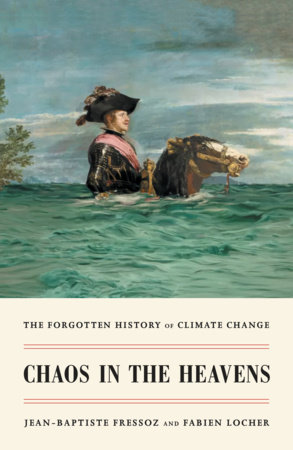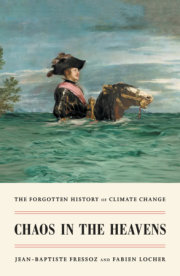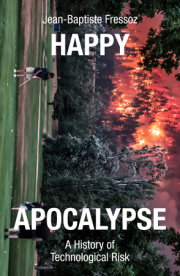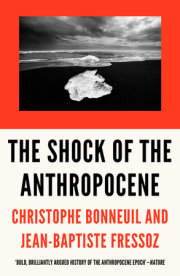Introduction: Ten Theses on Climate Change
1 Christopher Columbus’s True Discovery
‘The trees produce clouds and rain’
The sacred tree of El Hierro
Slavery in a temperate zone
2 Improving the World?
Colonial propaganda
‘Cosmical suspicions’
The sacred tree and the global water cycle
3 The Climate of History
Why did the Romans decline?
The climatic history of the European peoples
Ranking Nations
Countering the encroaching cold
4 The Birth of Historical Climatology
Meteorologists tackle the past
The pitfalls of historical thermometry
The sources of historical climatology
5 An Arsenal in the Indian Ocean
A nature for war
Bernardin de Saint-Pierre, or an unconditional eulogy of trees
An energy crisis
6 The Climate of the Revolution
‘Repairing the climate’
‘Compelling the weather to release its prey’
‘The forestry security’
‘Stop, stop that lethal axe’
Napoleon and the water cycle
7 Climate Patriotism
The climate of independence
The climate of improvement
8 In the Shadow of the Volcano
A planetary catastrophe
A providential debacle
Reassuring glaciers
A climate of laissez-faire
9 Should the National Forests be Sold?
Forests, debt, and climate
‘The torch of reason in our sacred woods’
The Revolution’s environmental legacy
10 The Crusades of François-Antoine Rauch
Rauch’s vision: a material, global and divine harmony
Babylon, or the ruins of the future
The bad business of the climate
11 Circular no. 18: An Inquiry into Climate Change from Two
The Ministry of the Interior and of Climate
Deciphering change
Pointers, evidence, and testimony
Scales of change
The forests and climates of the globe
Forgetting the inquiry
12 The Power of Forests
An affront to property
Forestry externalities
Playing on uncertainty
Return to Tacarigua
13 The Horizon Clears
Repairing France: from the sky to the ground
The slow eclipse of the forestry issue
The end of the agricultural ancien régime
14 The Enigmas of the Climatic Past
The labyrinth of change
The new climate sciences
The furnace of the Carboniferous
Entering the Holocene
15 Restoring the World, Governing Empires
The Arab and the climate
Threats to the Raj
The frontier climate
From the Sahara to the Namib
A planet of deserts
16 The Innocent Carbon of the Nineteenth Century
The theology of carbon
Regulatory mechanisms
Precursors of their time
Conclusion
Afterword
Index










